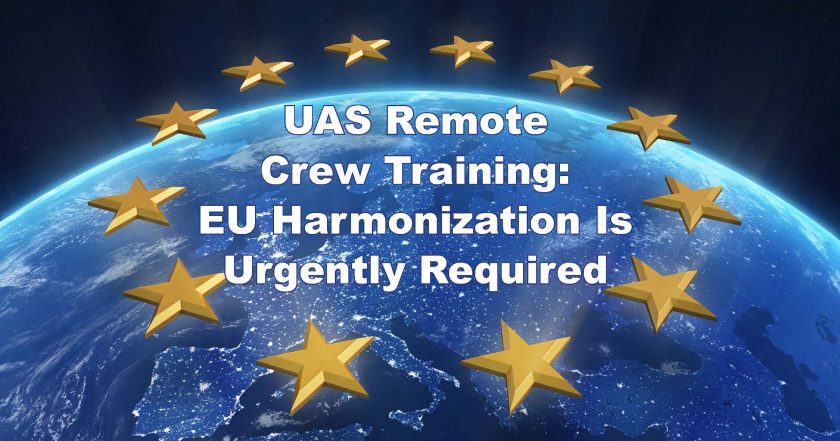By Peter van Blyenburgh
The Current Situation
Unmanned Aircraft Systems (UAS) embody the technological progress made in several key technology areas (i.a. IT, electronics, telecommunications, artificial intelligence) and the constantly growing number of potential applications hold the promise of supplying substantial societal benefits. The design, production, and the use of UAS, and the associated ecosystem, represent a significant financial sector and have the potential to create a wide variety of jobs in all 27 European Union (EU) Member States. This prompted most EU Member States to create national UAS regulations and guidelines. However, they have not been harmonized on the European level.
Taking the aforementioned into consideration, the European Commission (EC), through the European Aviation Safety Agency (EASA), has developed, in cooperation with multiple stakeholders, a European UAS regulation and the relevant implementation rules are already applicable in all EU Member States. This enormous effort has given the EU Member States a common and harmonized basis. The EU Member States have requested the EC to coordinate the harmonization of the national approaches by means of European regulation.
In the context of UAS operations in the “Open” category (A1, A2 & A3 subcategories) (<400 ft.; VLOS), the National Aviation Authorities (NAAs) have actively addressed the issue of Remote Pilot training, and the required courses and examinations are already available online. The only remaining matter is harmonization and enlarging of the multiple choice questions (MCQ) database.
UAS Operators in the “Specific” category will be required to employ Remote Pilots and Crew Members that are often required to be qualified in conformity with pan-European recognized proficiency “certificates”, in order to be able to operate in all EU countries. This requires a coordinated effort by UAS Operators, recognized and/or designated training entities, subject matter experts, in coordination with national and EU regulatory authorities. They urgently have to address a significant number of issues:
- Standard scenarios (STS) and Predefined Risk Assessments [PDRA (S-)]: STS will become applicable in all EU Member States on 1st January 2024, but there are no training and examination guidelines available, and model documents regulatorily defined by EASA are not physically available, nor harmonized.
- Predefined Risk Assessments [PDRA (G-)] and Specific Operation Risk Assessment (SORA): additional endorsement modules for specific operational conditions (e.g. night flight, hilly environment, carriage of dangerous goods (DGs), flight over water, etc.) shall be defined.
Note: Those currently published by EASA are not detailed enough.
- Instructors and Examiners: these roles and their associated responsibilities, training and qualifications requirements shall be defined.
In summary, operational documents & processes defined in the EU Regulation (training and examination syllabi and guidelines, progress booklets, assessment reports, etc.) are not physically available nor harmonized at EU level.
USE & Working Group 2205-1
United Systems Europe (USE) is a non-profit association registered in The Netherlands focusing on the interests of UAS Operators. In view of the afore-going, and taking into account the limited resources of the NAAs, USE has initiated the Working Group (WG) 2205-1 on Training, Qualification & Examination for Remote Pilots, Instructors & Examiners in the “Specific” operational category.
WG 2205-1 is a group of recognized industry experts that intends to operate in total transparency, in coordination with all relevant stakeholders and regulatory authorities on national and EU level, without duplicating any existing efforts and taking existing national resources and specificities into account.
WG 2205-1 projects to tackle, amongst others, the issues stated above by producing the documents required for common use across Europe. It also has the intent to create and administer a centralized online document library, as well as a listing of all nationally approved flight training organisations for the “Open” and “Specific” categories.
All subject matter experts with relevant expertise are invited to participate in WG 2205-1 and contribute to tackling the task indicated above.
For More Information: https://united-systems-europe.eu
Comments & Questions: contact@united-systems-europe.eu




